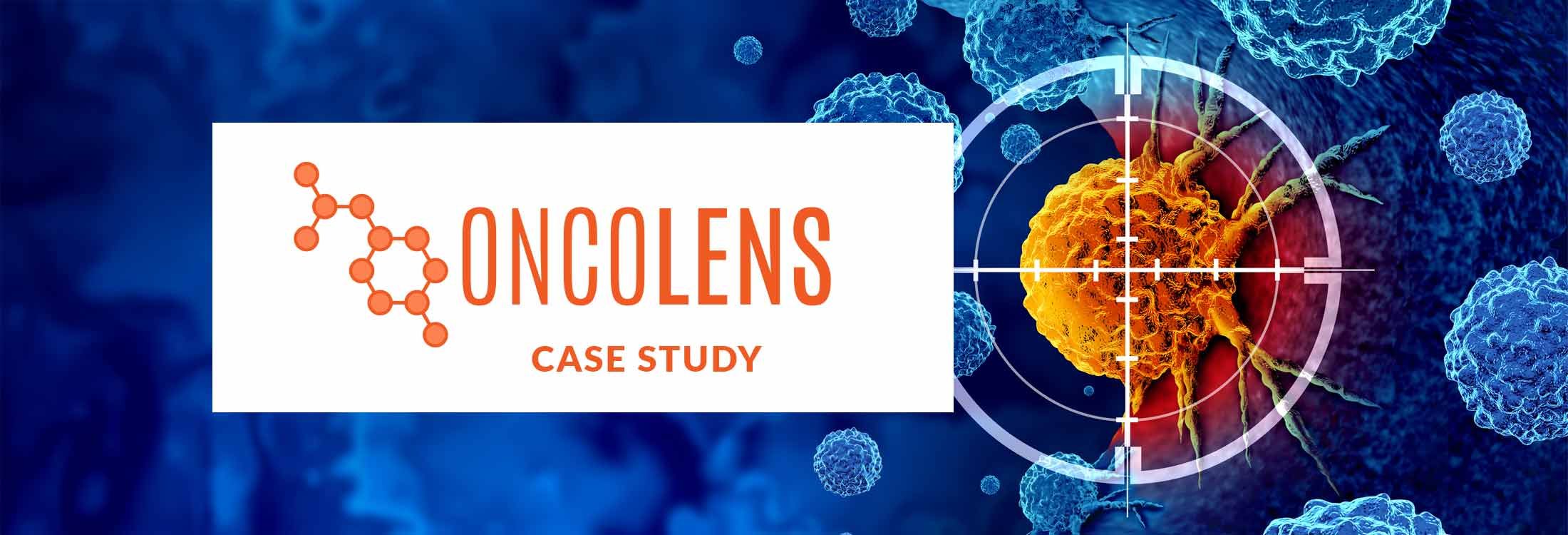A Comprehensive Platform
Driving the Delivery of Timely,
Precise Cancer Care
Explore Our Solutions

OncoLens, an AI‑enabled digital healthcare platform, delivers workflow and analytics solutions grounded in the hidden information within unstructured clinical and lab data.
80%
cancer staging extracted from clinical notes
650hrs
hours saved in patient cohort analysis for trial matching
70%
increase in appropriate biomarker testing
65%
improvement in case prep for tumor conferences
Watch this 2 minute video to see what OncoLens can do for you
The OncoLens Research Network (ORN)
Members of the OncoLens Research Network access highly targeted opportunities to drive research, insight and revenue
Highly curated
clinical trials
Precision medicine initiatives
Real world data
45,000+
multi-disciplinary physicians
220+
cancer centers
50%
of top 20 pharma partner with OncoLens
5M+
active patients under care
Ready to drive innovation and accelerate progress in oncology?
Reach out now to see how OncoLens can make a lasting impact.
Publications and Case Studies
Frequently Asked Questions
How can AI-powered healthcare tools improve precision oncology and patient identification?
OncoLens leverages AI to analyze structured and unstructured EMR data, enabling timely identification of patients eligible for advanced diagnostics, clinical trials or targeted therapies. Our platform supports precision oncology by streamlining patient ID workflows and surfacing key insights directly within provider and research team workflows.
What makes clinical trial matching so difficult for cancer centers and sponsors?
Clinical trial matching can be delayed by fragmented data and manual screening. OncoLens automates patient-to-trial matching by aligning trial I/E criteria with real-world EMR data. As an oncology focused platform, we go deep into understanding the nuances of cancer care including lines of therapy, indications of progression and more. This improves trial feasibility, reduces manual screening, and helps Life Science partners and cancer centers connect the right patients to the right trial at the right time.
What makes OncoLens a leader in oncology workflow and tumor board solutions?
Tumor board operations are often slowed by manual intake, inconsistent documentation, and redundant reporting tasks. OncoLens streamlines every step from case intake and CME tracking to accreditation reporting, cutting down administrative burden and boosting cross-team efficiency.
How does OncoLens use healthcare data analytics to support real-world evidence and research?
By combining clinical, pathology, and biomarker data, OncoLens delivers actionable insights into treatment patterns, care gaps, and demographic trends. Through the use of large language models tailored with our proprietary oncology knowledge models, our insights go deep, understanding lines of therapies, progression, and contextual information on the patient. Life Science teams and cancer centers use these analytics to inform trial design, evaluate performance, and drive quality improvement.
What are the benefits of partnering with the OncoLens Research Network?
The OncoLens Research Network connects Life Science companies with community and academic cancer centers. This partnership enables access to diverse patient populations, AI-driven patient matching, streamlined research workflows, highly curated industry trials, and revenue generating opportunities.
How does OncoLens improve oncology registry automation and data capture?
OncoLens integrates with leading EMRs to extract and standardize key data elements used in registry reporting. Our automation tools reduce manual abstraction, improve data quality, and support compliance with accreditation standards for cancer programs.
How does OncoLens support collaboration between Life Science companies and cancer care teams?
The OncoLens platform enables Life Science partners and oncology providers to coordinate on clinical trials, quality initiatives, and real-world data projects. Our white-glove support ensures transparency, alignment, and smooth execution from feasibility through closeout.
How can healthcare data integration improve oncology decision-making?
OncoLens aggregates structured and unstructured data from EMRs, pathology systems, and lab reports. This enables providers and Life Science teams to access a holistic view of the patient journey, identify trends, and unlock insights to guide treatment, research, and operational decisions.
How can precision oncology be scaled across networks without increasing complexity?
OncoLens enables scalable precision oncology by combining automated data extraction, AI-based matching, and robust analytics across multiple cancer centers. Whether for targeted therapies, biomarker tracking, or real-world evidence generation, OncoLens helps both providers and sponsors execute with confidence.













































